The Division for Late Medieval and Reformation Studies Celebrates 30 Years of Excellence
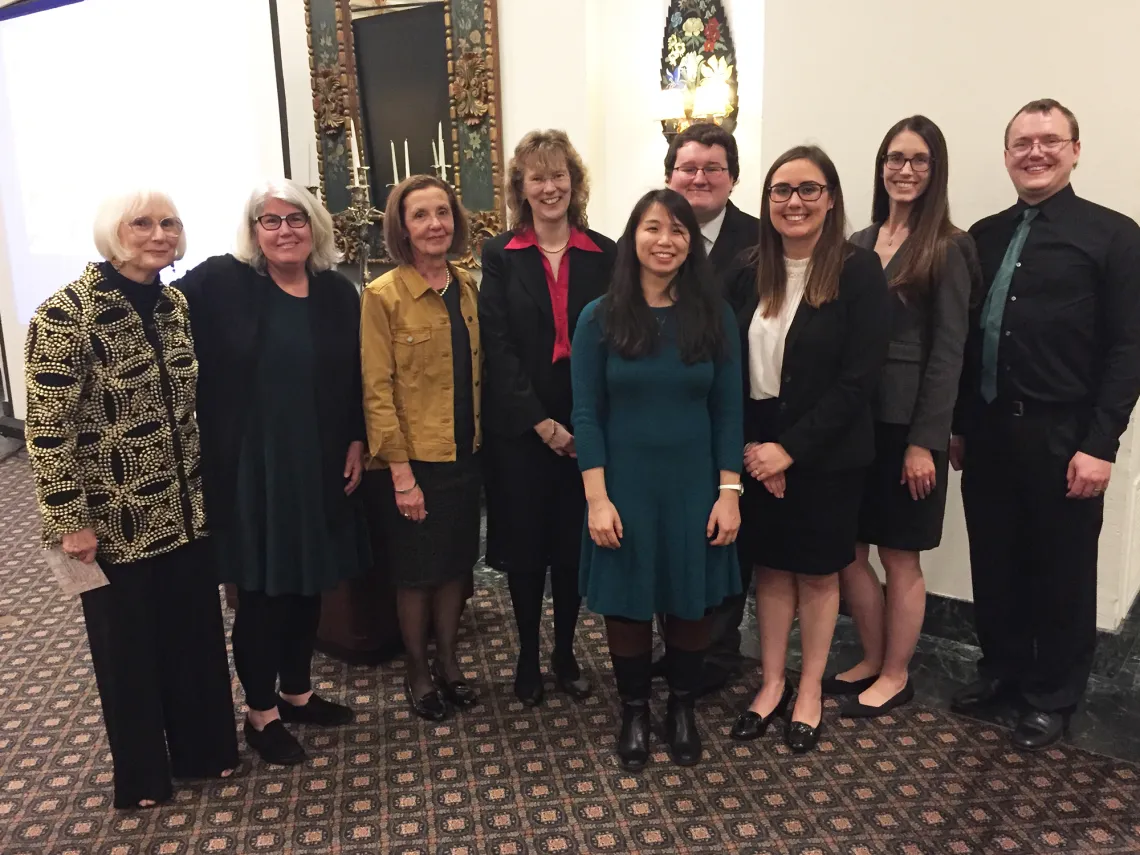
Faculty, staff, and students at the 30th Anniversary Celebration (l-r): Susan Karant-Nunn, Beth Plummer, Luise Betterton, Ute Lotz-Heumann, Christine Liou, Dean Messinger, Kaitlyn Centini, Hannah McClain, and Benjamin Miller.
Photo by Dirk Heumann
At the University of Arizona, the Division for Late Medieval and Reformation Studies is the center for graduate study of late medieval and early-modern Europe, 1400-1800.
The Division is small in terms of number of students. The graduate program usually has eight to 10 students at a time, allowing for personalized, rigorous instruction by top scholars in the field.
But the Division is large by a number of measures. The Division boasts two endowed professors, access to a world-class collection of late medieval and Reformation documents, and a reputation as one of the best programs of its kind in the world. The Division also has a longstanding history of community engagement and donor support.
This academic year, the Division is celebrating its 30th anniversary, which it marked by a reception at the Arizona Inn in January.
At the event, the Division not only celebrated its history, students, faculty, and donors, but it addressed the ongoing relevance of the late medieval and Reformation periods to current issues.
A History of Community Support
Heiko Oberman, a world-renowned historian, founded the Division for Late Medieval and Reformation Studies in 1989. In 1999, Susan Karant-Nunn, another giant in the field, joined the Division. Both were named Regents professors, the top honor given to UArizona professors.
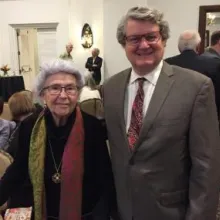
Before his death in 2001, Oberman promised to donate his extensive library to the university if it could raise the money to endow a faculty chair. Oberman accumulated a library of more than 10,000 volumes, some of which are from the 16th and 17th centuries and are quite rare.
After 10 years of fundraising led by then director Karant-Nunn, the Division reached the $2 million mark to endow the Heiko A. Oberman Chair, thanks to gifts from more than 520 community members, alumni, and friends. Professor Ute Lotz-Heumann, who specializes in German, Irish, and English history, was selected in 2008 to occupy the chair.
The Division later received an anonymous gift of $1 million, which resulted in the hiring of Beth Plummer in 2017 as the first Susan C. Karant-Nunn Professor of Reformation and Early Modern European History. Plummer is an expert on the Reformation and Martin Luther, on confessional coexistence and toleration, and on gender relations in early modern Germany.
The Division also holds several endowments that fund graduate students, helping it recruit top students and pay for the travel required for their studies.
World-class Reputation
“The Division is acknowledged as the premier center in the United States for the advanced study of medieval to early modern Europe,” said John Paul Jones III, dean of the College of Social and Behavioral Sciences.
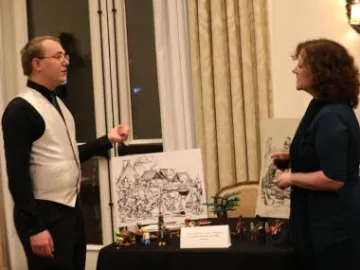
Jones noted that the Division is one of only four such centers in the world, including the University of Toronto, St. Andrews University, and the University of Geneva.
Lotz-Heumann, who was named the Division’s director after Karant-Nunn retired in 2017, acknowledged the Division’s strong reputation.
“I have noticed that our colleagues in early modern European history have taken to simply calling the Division by the name ‘Arizona’,” Lotz-Heumann said.
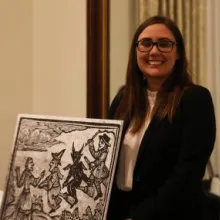
The Division attracts and graduates some of the best scholars in this field in the country. In the rigorous program, students are required to read Latin and to speak and read German and French. The students also study and conduct research abroad. Many students receive prestigious fellowships and go on to receive top academic positions around the world.
“I came to the University of Arizona because of the well-known reputation of the Division,” said graduate student Dean Messinger. “Both of my undergraduate advisors recommended it. The idea that there's a whole group of scholars studying what I study, it was just too tantalizing to not apply.”
Kaitlyn Centini concurred: “This is for me the top program to do what I want.”
Benjamin Miller said the personal attention he received from Lotz-Heumann and Karant-Nunn was also a deciding factor in his decision to come to the university.
“With the other schools, I did not have the level of human contact that I did with them and that was a really large part,” said Miller. “I could tell that this would be a good place for me, not only as a student, but as a person.”
Looking Forward
Director Emerita Karant-Nunn, who flew into Tucson for the anniversary festivities, praised Lotz-Heumann and Plummer and the freshness they bring to their work and the field.
“They think about digital humanities, not only subject matters but also methodologies,” said Karant-Nunn. “I think they are so apprised of where the field of early modern studies is going, that they bring truly the latest state of the field to our graduate students and also to undergraduate students.”
Lotz-Heumann and Plummer are the North American co-editors of Archive for Reformation History, which is the world's leading journal in the field.
At the anniversary event, Lotz-Heumann commented on some of the current research being tackled by the students, many on topics that continue to resonate in today’s world. “Our students are working on exciting research topics, such as early modern health care and poor relief, the treatment of refugees and other foreigners in early modern societies, how natural disasters impacted community relationships, and how military chaplains navigated their roles in war and peace.”
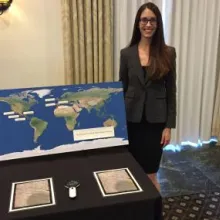
Lotz-Heumann also described a new collaborative research project with colleagues at the University of Oregon and Oxford Brookes University that focuses on churches that were shared by two or more Christian religions in early modern Europe. Graduate students identified the geographic coordinates for over 800 shared churches in central Europe between 1500 and 1800. The project will include digital and interactive maps and digitized archival materials.
Jennifer Lee Carrell, advisory board chair, spoke about the ongoing importance of the Division.
“It's imperative to know as much as possible about earlier periods of upheaval and change,” Lee Carrell said. “The late medieval and Reformation world was one of those times. When institutions of state and government and church were changing in profound ways as were ideas of God and humanity, of community and the individual.
“Working towards deep and wide knowledge of this period, not just working towards it but reworking what we think we know, is no retreat into an ivory tower,” Lee Carrell said. “To chart our possible futures, it’s necessary to know our past. The work of the Division for Late Medieval and Reformation Studies is now more relevant than ever.”
2020 Town and Gown Lecture
The theme for this year’s outreach programming is the Early Modern Atlantic World, which will be reflected in the annual Town and Gown lecture and the Summer Lecture Series.
This year’s Town and Gown lecture “Mala Sangre: Religion and Race in Colonial Latin America” will be on April 1 at 7 p.m. in the UA Fred Fox School of Music, Holsclaw Hall. The guest speaker will be Stuart Swartz, George Burton Adams Professor of History at Yale University.

